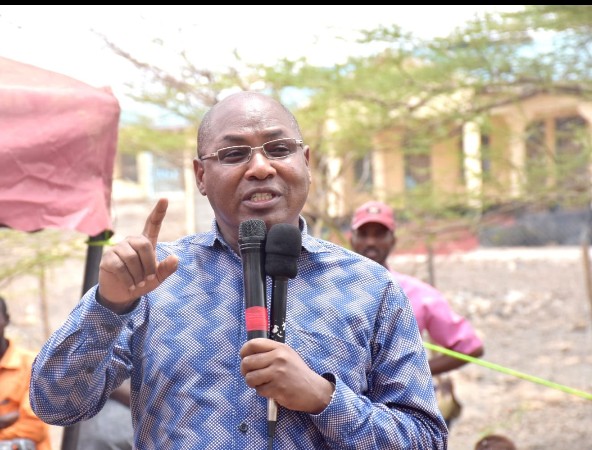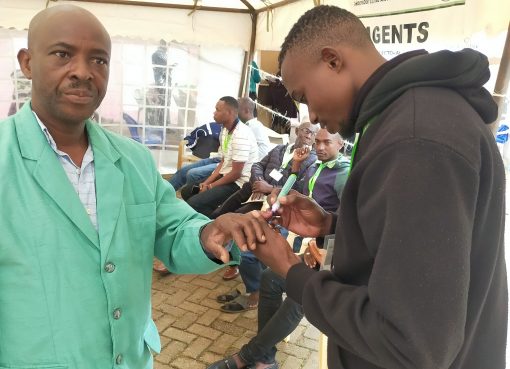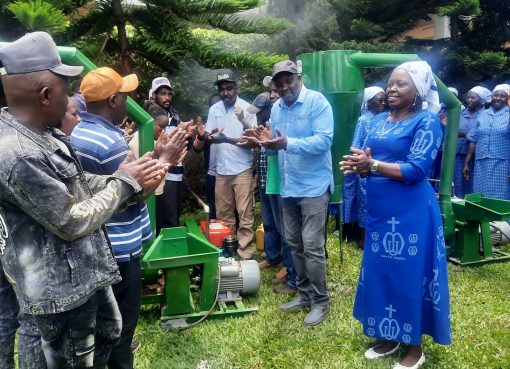The Principal Secretary (PS), State Department for Livestock, Harry Kimtai, has described the Livestock Industry as one of the key drivers of Kenya’s economy crucial in enabling the country attain the Ultimate goal of becoming a ‘Middle Income country’ by the year 2030.
The PS said the sector employs close to 50 percent of Kenya’s agricultural labor force and is a primary source of livelihood, for over six (6) million pastoralists and Agro-pastoralists.
He said the livestock sector earns the country substantial foreign exchange, through export of animals, hides, skins, dairy products and some processed products.
PS Kimtai was speaking during the official opening of the Animal Production Society of Kenya 2021, Scientific Symposium at the Kyaka Hotel in Machakos, through Zoom meeting.
He noted that the occasion provided a unique opportunity for Animal Production professionals, farmers, pastoralists and development partners, to share their work and help in livestock production issues.
Kimutai said the livestock sector accounts for about 12 percent of the entire GDP and 42 percent of the agricultural GDP.
“The sector supplies domestic requirements for meat, milk, dairy and other livestock products and accounts for 30 percent of the total marketed agricultural products,” added the PS.
He said the timing was critical because it came at a time when Kenya, through the ‘Big 4’ Agenda, sought to balance overall economic growth, with the Covid-19 challenges, ongoing drought, feeding a growing population and using its natural resources, without harming the environment.
Kimutai added that for animal production to be seen as a viable and top notch profession, coupled with the critical role it plays in the livestock industry, development of the Animal Production Professional and Technology Bill 2021, was timely and welcome.
“The Bill, once enacted into law, will provide for training, registration and licensing of animal production professionals and technicians and make sure there is proper regulation of the standards and practice of animal production profession,” added the Principal Secretary.
Kimutai said that the legislation will bring sanity to the practice of animal production and advise the government on matters relating to animal production, prescribe curriculum of instruction and courses, approve and oversee continuous professional development and facilitate internship programs.
The PS added that it is expected that the policy changes envisioned in the reviewed Livestock Policy 2020, will revitalize the livestock sector and guarantee sustainability of livestock farming, as a major economic thrust in the country.
He said the Livestock Bill 2021, which is in Parliament, will provide an enabling environment for the development and regulation of the livestock sector.
However, he said that the gap between supply and demand of livestock and livestock products is expected to widen in the foreseeable future and so the animal production professionals, have a critical role to play in the actualization of the ‘Big 4’ Agenda and bridging the gap between supply and demand.
This comes weeks after drought in Garissa caused the loss of several livestock which was a source of livelihood for pastoralists.
After many months without rain due to a change in climate conditions, many communities in northern Kenya, such as Garissa, are facing a harsh life, coupled with life-threatening hunger and competition with wild animals for resources, such as water and pastures.
Present during the zoom meeting at Kyaka Hotel in Machakos town were, Dr Christopher Wanga, Director Livestock Policy Research and Regulation, Bishar Elmi, Director Livestock Production, and Samuel Mbuku, Chairman Animal Production Society of Kenya.
By Ann Kangero




